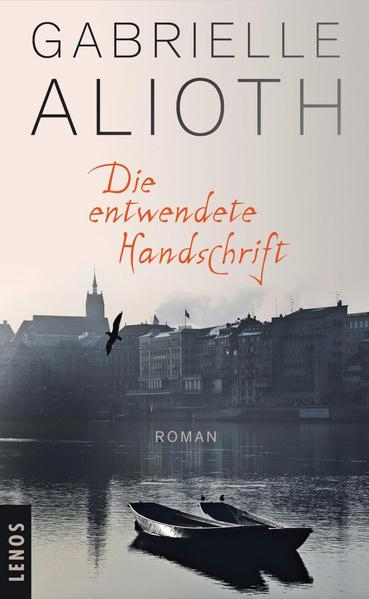On the morning of April 16th, 2015, the renowned medievalist Richard Merak is found dead at the Inselhotel in the city of Constance, on the very day he was due to give the keynote speech at the 600-year celebration of the Council of Constance. Laura returns to her hometown Basel after five years absence for his funeral and once more is forced to face her former life as Merak’s wife and to engage with the self-involved patricians of Basel. There, she comes across some discrepancies between the academic work of her husband and the findings of his unsuccessful rival Hans Peterson of the State Archives of Basel who drowned in the Rhine some months previously.
Laura starts to trace the causes for the diverging assessments of the two historians originating in their research on their shared point of interest: the life and work of Manuel Chrysoloras, born around 1355 in Constantinople, the author of the first Greek grammar for non-Greeks, who died during the Council of Constance. Quickly Laura comes to the conclusion that there is a connection between the disagreements between the two historians and their deaths. She gets caught in a net of secrecies and becomes a suspect herself.
The Purloined Manuscript

Details
- Herausgeber: Lenos
- Erscheinungstermin: 29.03.2016
- Taschenbuch: 224 Seiten
- ISBN: 978-3857874758
Rezensionen
Gekonnt verknüpft die 1955 in Basel geborene Gabrielle Alioth Familiengeschichten und Wissenschaftsdispute zu einem packenden Roman über menschliche Eitelkeiten. Sie schreibt erfreulich gradlinig und bildstark, in dem sie vor allem die Stadt Basel in einem besonderen Licht zeichnet. So kann man das Buch auch als psychogeografischen Reiseführer lesen.
Beim Lesen lässt es sich lässig durch die Stadt flanieren. (…) Auch Einblicke in Villen, ihr Interieur und Innenleben (…) Das liest sich gut weg.
With concision and trenchant wit she tells a tale of ambition, cold-heartedness, lies, social masks, class barriers, unplumbed emotional depths, a missing manuscript and a daring forgery […]. And she does this by skilfully mixing the layers and styles to create the best of documentary fiction. […] Laura has much in common with her creator – and it is not least these similarities that make Gabrielle Alioth’s new novel a thrilling and scintillating read.
Not just a thrilling crime narrative, but also a revealing portrait of the self-centred elite in traditional Basel society.
Every bit as appealing as Laura’s search for clues in familiar places – which Alioth captures succintly, precisely and very authentically – is her exposure of the society elite of Basel from an outsider perspective. […] A captivating and cleverly constructed novel that confronts two ways of making sense of the past: one the one hand, the research and interpretation of historical sources, on the other, literary invention.
Eine mehrere Generationen betreffende Familiengeschichte um Eifersucht, Neid, Dünkel und gesellschaftliche Akzeptanz …
Gabrielle Alioth erzählt eine bis zur letzten Seite spannend bleibende, noch nicht zuvor gekannte Geschichte, deren Verwicklungen – wie die Vergangenheit, laut Laura Merak – stets Funktionen der Gegenwart sind.
Dezent zeichnet Gabrielle Alioth ein kritisches Sittenbild des Basler «Daig». Der Roman ist als eine Art Wissenschaftskrimi auf eine unspektakuläre Art spannend, solid erzählt und profitiert vom gut getroffenen Lokal-Esprit.
Eine glänzende Leistung von Gabrielle Alioth ist dieser Roman: weder allein historischer Roman noch „Krimi“ oder akademischer Roman, weder Liebes- noch Trennungsroman, sondern alles zusammen, eine Kombination, deren menschliches Hirn und Herz fähig sind, sowohl auf seiten der Charaktere als auch ihrer Erschafferin.
Wie es sich anfühlte, nicht dazuzugehören, berichtet sie in einer plakativen Abrechnung, deren heimliche Protagonistin Basel ist: Die Streifzüge beschreiben Sehens- und Wissenswertes der Stadt, die wir und in der alle sich zu kennen glauben, und bergen dabei die Erkenntnis: Solvitur ambulando. Es löst sich durchs Gehen, auch durch das Weiterbewegen der Lesenden und Deutenden. Fakten, so der rechthaberische Professor, schwimmen wie Fettaugen auf der Suppe der Zeit, die Aufgabe – und hier sind Historiker und Erzählerin ein untreugleiches Paar – ist es, sie je neu zusammenzusetzen.